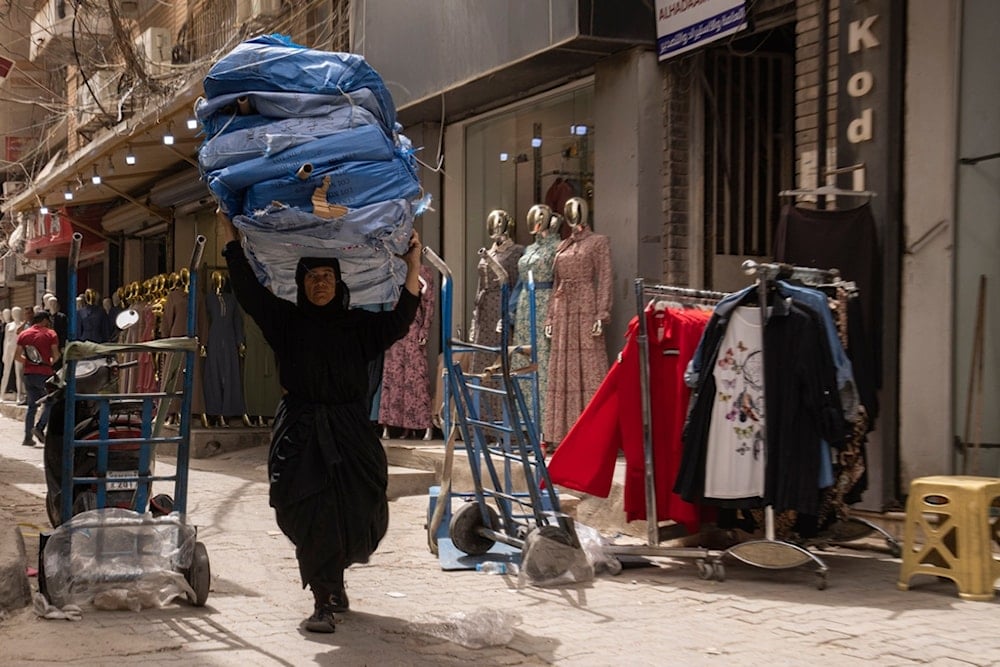US pressure sinks Iraq's Turkmen gas deal, deepening power crisis
Iraq's bid to import Turkmen gas via Iran collapsed under US "maximum pressure" sanctions, leaving Baghdad more dependent on dwindling Iranian supplies and scrambling for alternative energy sources.
-

A woman walks in the main Shurja market in central Baghdad, Iraq, Thursday, April 10, 2025. (AP Photo/Hadi Mizban)
Reuters on Friday reported that Iraq's attempt to address its chronic electricity crisis with Turkmen gas routed through Iran has collapsed under US sanctions pressure, highlighting how Washington's "maximum pressure" campaign on Tehran continues to ripple across the region.
Although Iraq is the world's second-largest oil producer within OPEC, it has been unable to meet domestic power demand since the 2003 US-led invasion. Millions of Iraqis still rely on costly private generators, a strain that fuels social unrest.
"This isn't just my suffering, it's the suffering of the entire Iraqi people," Hussain Saad, a butcher in Baghdad's Kasra neighborhood told Reuters, as he worried about his stock spoiling in the heat.
The blocked deal, proposed in 2023, envisaged Turkmenistan supplying more than 5 bcm of gas annually through Iran's National Iranian Gas Company, with Tehran retaining roughly 23% for its own needs. Baghdad even offered third-party monitoring to ensure compliance with sanctions, but US officials refused to approve it.
"Proceeding (with the Turkmen deal) could trigger sanctions on Iraqi banks and financial institutions, so the contract is currently suspended," said Adel Karim, energy advisor to the prime minister.
Between Gas sanctions
The collapse underscores Iraq's dilemma: caught between reliance on Iranian gas, which covers about one-third of its generation needs, and US restrictions that cut off sanctioned flows. The end of US waivers in March forced a sharp reduction, eliminating 3,000 megawatts of capacity, equivalent to power for 2.5 million households.
Baghdad is now racing to diversify. Officials are pursuing LNG imports from Qatar and Oman via a floating terminal, while multibillion-dollar agreements with TotalEnergies, BP, and Chevron aim to capture gas that is currently flared alongside oil.
At the same time, disputes over Kurdish oil fields, where exports via Turkey's Ceyhan pipeline have been halted since 2023, show how internal divisions also undermine Iraq's ability to leverage its own resources.
The Kurdistan Regional Government's crude is high-quality, but revenues have dried up amid legal battles with Baghdad and the pipeline's shutdown, limiting its contribution to national energy security.
"We're expanding our gas-fired power plants," Karim said. "We'll need more gas and more sources."
Read more: Iran, Iraq leaders call for stronger parliamentary cooperation

 3 Min Read
3 Min Read








